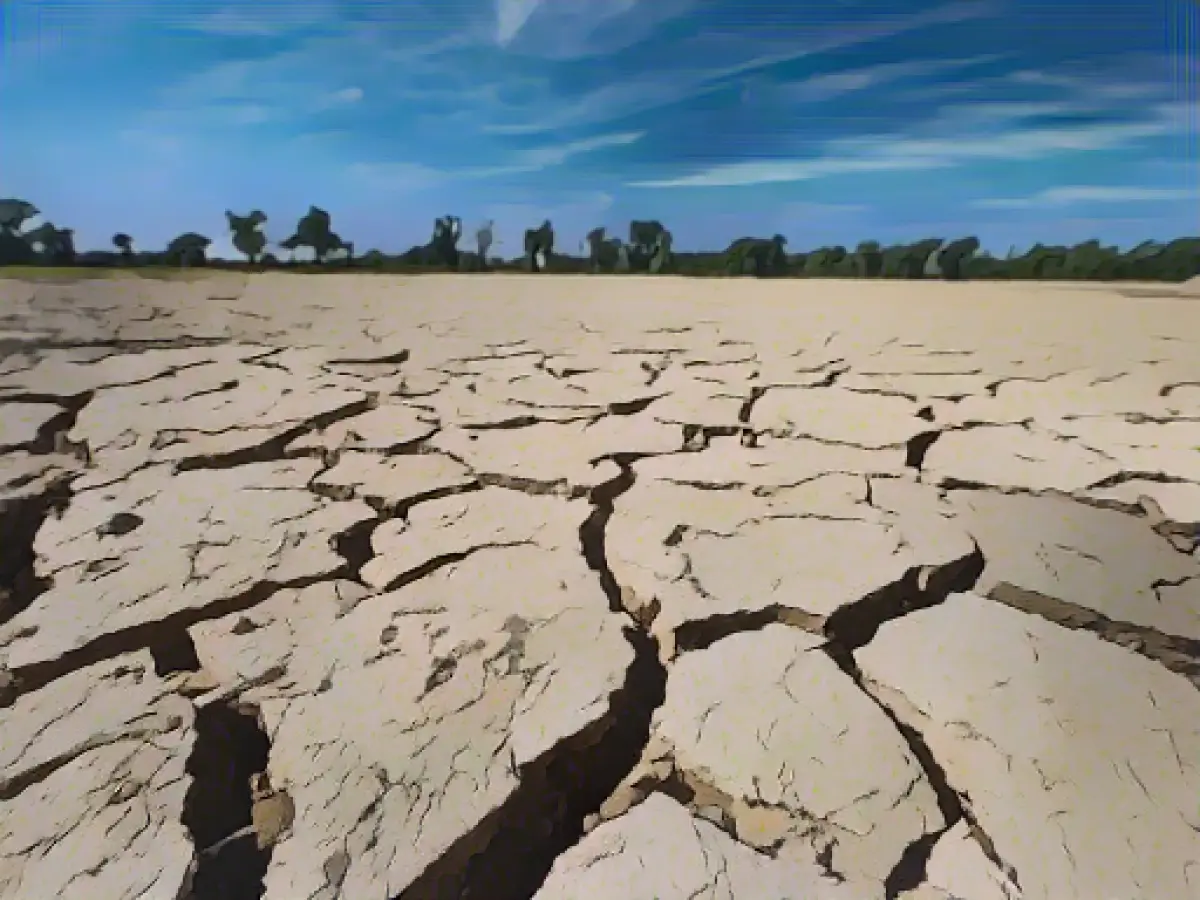Climate conference in Dubai - What is at stake
At the end of the year, which will probably be the hottest since records began, the global community is discussing its future. Heads of state and government are wrestling with the question: what can we do to prevent it from getting much hotter and climate change from causing far more drastic damage?
Around 70,000 negotiators, journalists, activists and experts are expected to attend the UN World Climate Conference in Dubai, with the official opening scheduled for this Thursday. An overview of what it's all about and what's at stake.
The upcoming climate conference - also known as COP28 - is already the 28th meeting of its kind. So what's the point of it all?
Doubts that the crisis will be solved at these conferences are justified. The processes are cumbersome and the agreements are often voluntary. And yet, the mere fact that representatives from around 200 countries come together is not a matter of course. All participating states, even China and Russia, are de facto recognizing this: We have a common problem.
But will anything come of it?
After all, in Paris in 2015, the states agreed to limit global warming to well below two degrees - or even better, 1.5 degrees. Most countries ratified this agreement, i.e. committed to bringing their climate policy into line with it. This was considered a breakthrough at the time. However, not enough has happened since then. "This also appears regularly in the resolutions of the climate conferences, but paper is known to be patient. Far too little happens afterwards," says Jan Kowalzig, climate diplomacy expert at Oxfam. As many countries are still heavily dependent on coal, oil and gas, it has not yet been possible to make a clear commitment to phasing out fossil fuels at the climate summits.
And this is now supposed to happen in Dubai of all places?
Expectations in this area are muted, especially as the presidency shows little ambition. The host of the conference, Sultan Ahmed al-Jaber, is also the head of the state oil company Adnoc, which is planning numerous new fossil fuel projects. "The buck stops here," says Greenpeace boss Martin Kaiser. Instead, an ambitious new target for the expansion of renewable energies is to be agreed in Dubai. There will also be a financial pot for damages and losses, and for the first time since Paris, an official stocktaking is on the agenda: Is the world on course to contain the crisis?
Are the states on course?
No, they are far from it, as current analyses show. According to the United Nations, the planet is currently heading for almost three degrees instead of 1.5 degrees by the end of the century - and that is only if all the pledges made by the states are kept, which does not look likely at the moment. A crucial question at COP28 will be how this gap is to be closed.
Can climate change still be stopped at all?
It cannot be stopped, but it can be limited. "Every tenth of a degree counts" is also the motto of UN climate chief Simon Stiell. Climate change is already causing more severe and longer heatwaves, devastating floods, storms and droughts all over the world - and this is already happening at around 1.2 degrees of warming. The hotter, the greater the climate damage.
Are the climate conferences pointless then?
Like other experts, Kowalzig is of the opinion that the conferences achieve far too little, but that things would look even worse without them. We are still a long way from achieving the Paris goals. "But at least we are currently heading towards a warming of just under 3 degrees, ten years ago it still looked like over 4 degrees," says Kowalzig. "We can't be satisfied with that, because even 2 degrees or 3 degrees means huge upheaval in many countries, catastrophic crop damage, island states sinking, areas becoming uninhabitable in the long term - and the erosion of the livelihoods of billions of people."
Ukraine war, Gaza war, lack of money - is joint progress on climate protection even conceivable?
The global situation is taking up a lot of political and media attention. "How much political investment you can put into the climate process also depends on the other issues in the global situation," says expert Kowalzig. At the same time, however, climate protection can also be a common denominator when there is disagreement on many other issues. For example, the major climate polluters, the USA and China, have recently sent out positive signals: Shortly before the summit between US President Joe Biden and China's head of state and party leader Xi Jinping, both countries committed to increased cooperation in the fight against global warming. The countries jointly announced in mid-November that they wanted to step up their efforts - the climate crisis is "one of the greatest challenges of our time".
The climate conference in Dubai, led by Sultan Ahmed al-Jaber, aims to agree on a new target for renewable energy expansion and establish a financial fund for damages and losses, despite China's state oil company Adnoc planning numerous new fossil fuel projects. Despite doubts over the effectiveness of climate conferences due to cumbersome processes and voluntary agreements, Xi Jinping's commitment to increased cooperation with the US in combating global warming demonstrates that these conferences can serve as a common ground for addressing global issues, even amid various geopolitical crises.
Source: www.dpa.com








